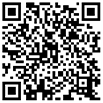| [1] |
SUN Da-Rui
, XU Jin-Qiang
, TANG Kun
. Simulation and Error Analysis of Electro-optic Sampling Measurement of Ultrashort Electron Beam Bunch Length. Chinese Physics C,
2008, 32(S1): 121-123. |
| [2] |
WANG Lin-Xiang
, ZHU Heng-Jiang
, WANG Shi-Heng
, WANG Xian-Ming
. Simulation of the Penetration Range Distribution for Nitrogen Ions Implanted into the Plant Seed at Low Energy. Chinese Physics C,
2007, 31(3): 311-315. |
| [3] |
BIAN Xiao-Hao
, CHEN Huai-Bi
, ZHENG Shu-Xin
. Calculating of Coupling Factor for the Heterogeneous Part of Accelerating Structure. Chinese Physics C,
2006, 30(1): 62-65. |
| [4] |
WANG Na-Xiu
, ZHU Yi
, FU Yuan
. Simulation of Thermal Distortion of DCM Crystal Indirectly Cooled by LN2. Chinese Physics C,
2006, 30(8): 802-805. |
| [5] |
XU Hua-Gen
, XU Hu-Shan
, LI Wen-Fei
, ZHAN Wen-Long
, XIAO Guo-Qing
, SUN Zhi-Yu
, GUO Zhong-Yan
, LI Song-Lin
, DUAN Li-Min
, WANG Hong-Wei
, XIAO Zhi-Gang
, HUANG Wen-Xue
, LI C
,
,
,
. Monte Carlo Study of the Neutron Detection Wall at RIBLLⅡ in HIRFL-CSR. Chinese Physics C,
2006, 30(1): 57-61. |
| [6] |
BIAN Xiao-Hao
, CHEN Huai-Bi
, ZHENG Shu-Xin
. Calculating of Coupling Factor for Double-Period Accelerating Structure. Chinese Physics C,
2005, 29(9): 900-902. |
| [7] |
TANG Chuan-Xiang
, JIANG Zhan-Feng
, TIAN Kai
, WANG Ying
, XU Yi-Yong
. Simulation of Micro-Pulse Electron Guns. Chinese Physics C,
2003, 27(6): 546-550. |
| [8] |
YANG Xiao-Dong
, Parkhomchuk V
, ZHAO Hong-Wei
, ZHANG Wen-Zhi
, SONG Ming-Tao
, YUAN You-Jin
, XIA Jia-Wen
. Electron Cooling Simulation in HIRFL-CSR Main Ring. Chinese Physics C,
2003, 27(9): 824-827. |
| [9] |
KANG Wen
, HAN Qian
, HAO Yao-Dou
. Theoretical Analysis and Computer Simulation of a New Slotted Pipe Kicker Magnet. Chinese Physics C,
2003, 27(3): 263-267. |
| [10] |
WEN Wan-Xin
, JIN Gen-Ming
. Monte Carlo Simulations for Optimum Design of Composite Detectors for High Energy γ Ray. Chinese Physics C,
2002, 26(12): 1291-1296. |
| [11] |
KANG Wen
, DING Xiao-Ping
, HAN Qian
, PANG Jia-Biao
, CHEN Sen-Yu
. Design and Construction of a Thin Septum Magnet Prototype for Injection of SSRF Storage Ring. Chinese Physics C,
2002, 26(4): 423-429. |
| [12] |
CHEN Shi-Bin
, ZHANG Yi-Men
, CHEN Yu-Sheng
, HUANG Liu-Xing
, ZHANG Yu-Ming
. Simulation of Energy Deposition of Protons and 1MeV Neutrons in Silicon. Chinese Physics C,
2001, 25(4): 365-370. |
| [13] |
DING Xiao-Ping
, KANG Wen
. Study of Layout Principle and Simulated Calculation for a Resonant Extraction System. Chinese Physics C,
2001, 25(2): 167-173. |
| [14] |
Tang Chuanxiang
, Yang Yue
, Lin Yuzheng
. Simulation of RF Thermionic Gun. Chinese Physics C,
1996, 20(4): 376-384. |
| [15] |
Hou Defu
, Li Jiarong
. Cutting Rules and Imaginary Parts of Thermal Green Functions in Thermofield Dynamics. Chinese Physics C,
1995, 19(10): 891-897. |
| [16] |
BAO Jing-Dong
, ZHU Yi-Zhong
. CALCULATION OF THE KINETIC-ENERGY DISTRIBUTIONS OF FISSION-FRAGMENTS FROM MONTE-CARLO SIMULATION TO THE FOUR-DIMENSIONAL LANGEVIN EQUATION. Chinese Physics C,
1989, 13(11): 1023-1031. |
| [17] |
SHEN Wen-Qing
. SIMULATION OF QCASI-FISSION INDUCED BY 238U. Chinese Physics C,
1988, 12(2): 237-245. |
| [18] |
PEI Guo-Xi
, ZHANG Wu
, TIAN Bao-Ying
, XU Jian-Ming
. THE FINITE ELEMENT ANALYSIS OF EDDY-CURRENT FIELDS OF A C-TYPE SOLID YOKE BENDING MAGNET. Chinese Physics C,
1988, 12(1): 80-84. |
| [19] |
ZHU Qing-Qi
, WU Shi-Pei
. SIMULATION CALCULATION FOR DETECTION EFFICIENCY IN THE MEASUREMENT OF COSMIC RAY HADRON SPECTRA. Chinese Physics C,
1985, 9(3): 263-267. |
| [20] |
Chen Jia-er
. THE MOTION OF IONS IN RF ION BEAM CHOPPERS. Chinese Physics C,
1980, 4(3): 401-404. |





 Abstract
Abstract HTML
HTML Reference
Reference Related
Related PDF
PDF













 DownLoad:
DownLoad: